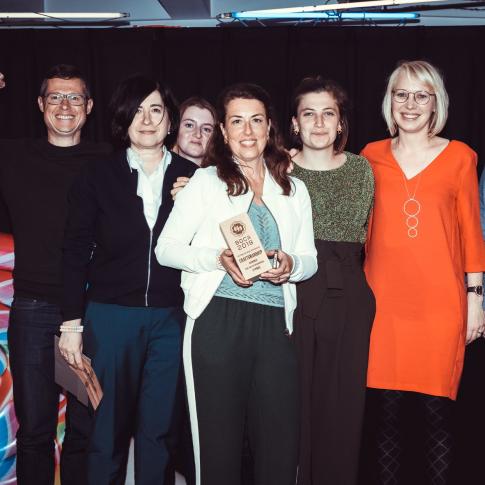
Alex Duin
Don’t forget about adaptive content when building a responsive website
A historic paradigm shift happened in 2013: for the first time, more people accessed the web on a mobile device than on a desktop. There’s now, more than ever, a need for responsive websites, and it’s important to focus on content, not just design, when building one.
Once upon a time, if you created a website you could safely assume that it would be viewed on a nice, big computer monitor. Even as internet-enabled mobile phones proliferated, their use was still tiny in comparison to the numbers of PCs, so big websites made do with cut-down mobile versions for those on the go.
Comparable experience
This couldn't last. As smartphones outsold PCs and tablet computers staked a claim on the middle ground, there was simply no way of guaranteeing what your reader might be using to view your site, yet consumers expected a comparable experience as they switched between devices. That meant creating websites that could be ‘responsive’ to any digital platform. However, making your website respond properly to the device it’s displayed on can have an impact on both design and content.
Responsive design at its most basic means making sure your website can be easily viewed and understood at any resolution and aspect ratio. For instance, a site that might have three columns when viewed at full-screen on a 16:9 1080p monitor could change into a single column when displayed on a narrow rectangular smartphone screen.
This wouldn't be a simple on/off mode – as you stretch and squash a window, its display should seamlessly change from three columns to two and then to one. And it's not just the text format that can alter: images placed on one side of a larger screen can vertically align with text on a smaller one. Websites can change radically over different sizes, though remain fundamentally identical in content.
From responsive design to adaptive content
All this is easier said than done. Building a responsive website is not only more complicated technically, it also presents challenges to those providing the content. It's important to make sure that content is adaptive –that text that works, say, as a short squat column can also work as a long narrow one. If content refers to images, can you be sure that those images will end up where you think they should be? You might want to stop some pieces of text from appearing in different resolutions entirely – but still keep the integrity of the content intact. There are plenty of new lessons to learn, but your readers will appreciate you learning them.
Responsive design also introduces problems with usability. As well as being unable to presuppose which device the content will be viewed on, you also can't assume where it will be viewed. Your site had better be readable whether it’s seen indoors under low lighting or in the direct glare of the sun. As a result, high contrast is the order of the day. Make sure you have a clear style guide to maintain a consistent look that's also easy to read.
Keep the future in mind
Creating compelling content can be difficult enough without adding the problems of constantly shifting website design. So it's down to technical teams to build a robust and easy-to-use content management system (CMS) so that content producers can express their creative instincts most effectively and still be fully aware of what the results will actually look like.
Remember that this is an ongoing process – what your intended viewers want and do is different today than it was a few years ago, and you can be sure that it will be different from what they’ll want and do in years to come. The ever-changing nature of technology and society means that certainties don't stay certain for very long. So it's more crucial than ever to keep a watchful eye on your market, and make sure your content and technology are flexible enough to adapt to the future.
Alex Duin is a freelance writer from London who's written for the BBC, EU and many others. His speciality is technology - if it beeps, he can probably cobble together a paragraph on it. Cypres content strategist Frederik Hautain contributed to this article.



